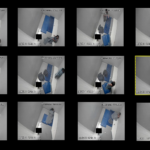Imagine waking up in the middle of an operation only to discover that doctors were trying to harvest your organs for transplant.
Sounds like something out of a horror movie doesn’t it? And yet for one US lady that is exactly what happened.
Colleen Burns, reported how her shock turned to horror, when she opened her eyes to discover that she was the subject of an unwanted and unnecessary hospital operation, in which her organs were being removed. They would then have been sent on to other waiting surgeons who would transplant them into other patients.
This occurred after she was mistakenly pronounced dead by medical personnel who wrongly claimed that she had suffered “cardiopulmonary arrest” and “irreversible brain damage.”
It gave them the medical justification to start slicing away even while the woman’s heart was still beating.
This was because in the case of organ donors, dead doesn’t always mean “dead” in the way most people think of it.
It doesn’t always mean that your heart has stopped beating or your brain has stopped functioning – because these conditions, as in the case of Mrs Burns don’t always have to be met before an organ can be taken.
Organ donation is worth billions to hospitals and drug companies, and millions of people – particularly those from wealthy backgrounds are willing to pay for new kidneys, hearts, livers and other body parts.
The Syracuse Post-Standard unearthed a report from the U.S. Department of Health and Human Services that chronicled the series of errors that led to the near-organ removal of Ms Burns at St. Joseph’s Hospital Health Center in Syracuse, N.Y.
It revealed how doctors had inaccurately diagnosed Ms Burns with irreversible brain damage and ignored nurses who’d noticed signs that she was improving. She curled her toes when touched, flared her nostrils and moved her mouth and tongue. She was also breathing on her own even though she was on a respirator, but despite this, she was still declared dead.
She was initially found surrounded by empty bottles of tablets after a suicide attempt, but was still breathing normally when taken to hospital.
In the accident and emergency unit, it was revealed she was suffering from a multi-drug overdose, and poison control specialists recommended using activated charcoal to stop her body from absorbing the drugs – but this did not happen.
EEG brain scans initially revealed that she had a poor “prognosis” but despite making improvements, doctors claimed that the brain damage was irreversible and that she’d undergone “cardiorespiratory arrest.”
Arrangements were made for her organs to be harvested the next day – and the procedure only came to a halt once she opened her eyes.
She later passed away months later from an unrelated cause.
Cases like these highlight the need for more checks and balances to be performed before organs are taken from a patient. But when organs are in such short supply, and wealthy individuals are able to purchase organs ahead of their poorer counterparts, sadly, there are many cases when the will or the means to carry out these important safety checks are all too often missing.
Another problem with organ donation is very often, the organs which are taken from patients are diseased or in an unhealthy condition – potentially storing up health problems for the recipient.
The case of Colleen Burns is one such example because if the operation had gone ahead her organs would have been full of toxic drugs, as detailed by the doctors.
In 2009, an Iraq war veteran named Matthew Millington was given a lung transplant using lungs that were infected with a malignant fast-growing cancer. He died less than ten months after receiving the organs.
The problem is inherent. Healthy people who eat good nutrition, tend to live longer whereas smokers, alcoholics and those who are obese or have bad nutrition, tend to die sooner and thus those are the organs that are often available.
This creates pressure on the industry, and creates situations where doctors are more likely to unwittingly harvest organs from people who are not yet dead because of failure to perform important basic checks, or situations in which diseased organs are used instead.
Some countries are responding to this by creating laws whereby you have to opt-out of being an organ donor, rather than opt in.
But in the absence of basic safety checks, and widespread education on nutrition to reduce the need for such organs in the first place, these systems may create a ticking timebomb of lawsuits and fatal errors that create havoc for all concerned.
Therefore it is vital that good healthy practices are encouraged and that proper checks and balances are carried out before such procedures take place.
However in the context of a system where government cover ups, corruption and vested corporate interests are the order of the day, there appears to be little political will in creating a safe space for patients.
And in an era when we have government ministers talking openly about the need for de-population and acting upon this theory through wars, social inequality, false flag terror attacks and the appointment of companies such as Coca Cola, Mars and Monsanto onto public health departments, then trusting the medical industry with life and limb is not as wise a move as it should be.
Therefore, perhaps when we have unfortunate and sad cases such as Colleen’s, the question we should be asking ourselves is: Is the problem greater than a simple case of human error, and does the solution lie in wholesale reform of both the health and the political systems?
Akashic Times is the UK’s only online, fully independent not-for-profit weekly newspaper that brings you real news from across the globe.
If you want to keep ahead of what is really going on in the world, subscribe to our newspaper via the subscribe button and join our Facebook & Twitter pages. Subscription is completely free ofcourse


















Follow Us!